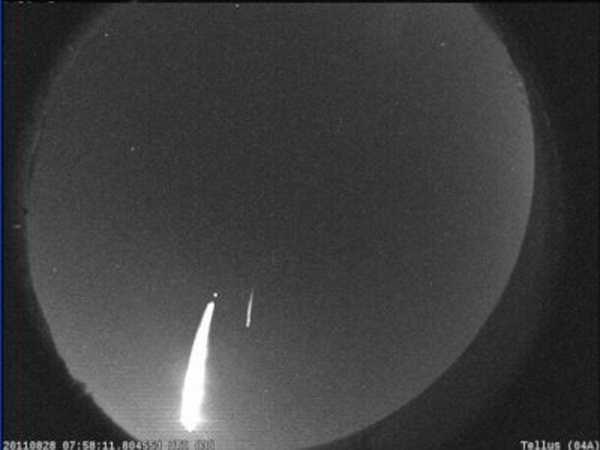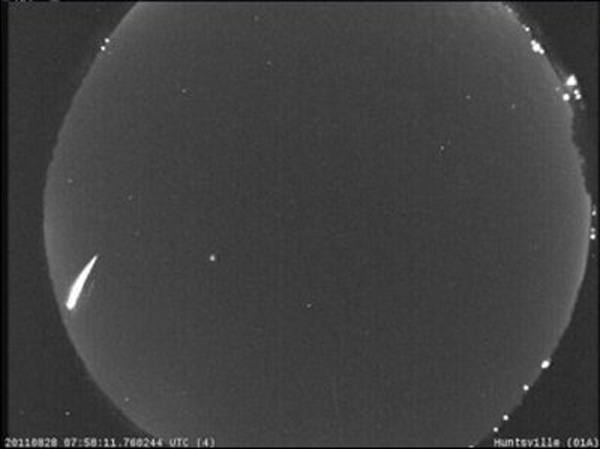Brilliant Meteor Lights Up Sky Over Atlanta

A bright meteor lit up the night sky above Atlanta on Sunday (Aug. 28) in a dazzling display caught by NASA cameras.
The meteor streaked over Atlanta, Ga., and its surrounding cities at the mind-blowing speed of about 52,800 mph (84,970 kph).
NASA's network of all-sky cameras, which monitors the sky for meteor and fireball events, caught several views of the "shooting star" from different cities, including a video recorded from Cartersville, Ga., though it was difficult to pinpoint the meteor's core. [Video of the Atlanta meteor]
"The meteor was too bright for the all-sky camera in Cartersville, Ga., to accurately determine the center of light, so manual analysis will be required to determine a more accurate end point," NASA meteor scientist Bill Cooke wrote in a blog post. Cooke is the head of NASA's Meteoroid Environment Office at the Marshall Space Flight Center in Huntsville, Ala.
The meteor was streaking over the Atlanta suburb of Duluth at an altitude of about 65 miles (105 kilometers) when it was first spotted, and fizzled out at a point about 26 miles (42 km) between the towns of Stockbridge and McDonough.
Astronomers have different names for space rocks depending on where they are.
Small rocks and dust particles in space are considered meteoroids until they encounter Earth's atmosphere. If they blaze up in a bright fireball or flash, they are called meteors, and if any remnants reach the Earth's surface, they are called meteorites.
Breaking space news, the latest updates on rocket launches, skywatching events and more!
If you spot a meteor, you can check this NASA website to see if it the space agency has identified its origins: http://fireballs.ndc.nasa.gov/
Follow SPACE.com for the latest in space science and exploration news on Twitter @Spacedotcom and on Facebook.

Tariq is the award-winning Editor-in-Chief of Space.com and joined the team in 2001. He covers human spaceflight, as well as skywatching and entertainment. He became Space.com's Editor-in-Chief in 2019. Before joining Space.com, Tariq was a staff reporter for The Los Angeles Times covering education and city beats in La Habra, Fullerton and Huntington Beach. He's a recipient of the 2022 Harry Kolcum Award for excellence in space reporting and the 2025 Space Pioneer Award from the National Space Society. He is an Eagle Scout and Space Camp alum with journalism degrees from the USC and NYU. You can find Tariq at Space.com and as the co-host to the This Week In Space podcast on the TWiT network. To see his latest project, you can follow Tariq on Twitter @tariqjmalik.

